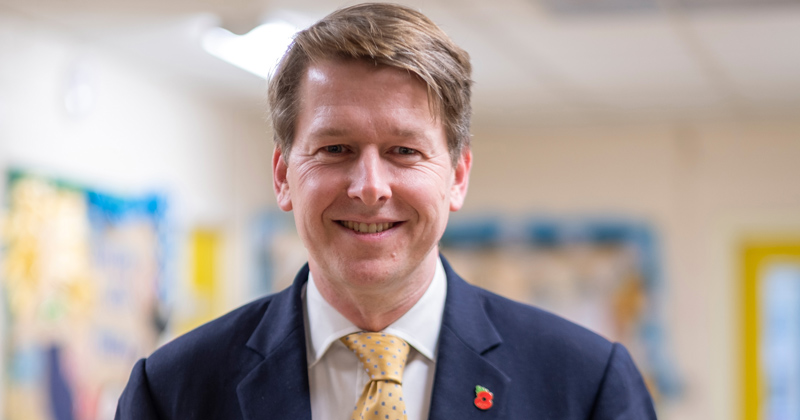The government has confirmed reforms to boost take-up of language GCSEs, but the changes – described as “risky and untested” by the sector – will be delayed a year.
The revisions, announced today, are designed to make learning GCSE French, German and Spanish “more accessible”.
Following a public consultation last year, the first teaching date for the new GCSEs will be a year later in September 2024, with the first exams in 2026.
This will allow exam boards and schools more time to prepare for new subject content.
Vocabulary definition broadened
Last year the all-parliamentary parliamentary group for modern languages and education unions urged the DfE to delay the “risky and untested” reforms.
The government has tweaked some of its initial proposals in response to the consultation.
Pupils will be assessed on the most common vocabulary used in conversation and writing, as well as grammar and pronunciation.
Under initial proposals, they would have been “expected to know” 1,200 words at foundation tier and a further 500 at higher tier.
Curriculum which mainly focuses on memorising a long list of words will alienate pupils
The definition of vocabulary has since been broadened to 1,200 “word families” at foundation tier and 1,700 “word families” at higher tier.
The consultation says this definition is “broader than that of individual words, and in practice, this change means the number of words on which students can be assessed is higher”.
An example of a word family would be ‘manage’, managed’ and ‘manages’.
The government had said exam boards must select 90 per cent of these words from the 2,000 most “frequently occuring” words in that language. But this requirement has been reduced to 85 per cent so boards have “more flexibility”.
The “main concern” from the 1,644 consultation respondents was over not setting any expectations on exam boards to list vocabularly thematically.
To address this, government said “the subject content now provides a clearer expectation on awarding organisations that they identify broad themes and topics”.
‘GCSEs made prescriptive and grinding’
But Geoff Barton, general secretary of the Association of School and College Leaders, which backed the delay calls, said a “curriculum which mainly focuses on memorising a long list of words will alienate pupils and prove counter-productive.
“At a time when pupils need to be enthused to learn languages, the government has chosen to make GCSEs both prescriptive and grinding.”
The government wants 90 per cent of year 10 pupils being entered into the EBacc by 2025. However low take-up of languages – 46 per cent – is the “primary barrier” to achieving this, government says.
They say part of this is the “perceived difficulty” of languages, students’ “negative perception” and a “general lack of motivation”.
Schools Minister Robin Walker said: “Studying languages opens up a world of new, exciting opportunities for people and is hugely important for a modern global economy.
“That’s why we want more young people to take up modern language GCSEs, and these evidence-based changes aim to do just that – making these qualifications more well-rounded and accessible, and helping more young people to enjoy learning languages.”

Ofqual confirms assessment objective changes
Ofqual also consulted on changes to assessment objectives for the three GCSEs to reflect the reforms.
It confirmed reducing the number of assessment objectives from 4 to 3 with new weightings – despite half of respondents disagreeing with the proposals and only a third supporting them.
The regulator said these set out the proportion of the total marks that must be allocated to each key skill or area of understanding.
Understanding spoken language will be 35 per cent, written language will be 45 per cent and the remaining 20 per cent will be around application of grammar and vocabulary.
This is a change from current listening, speaking, reading and writing – all weighted at 25 per cent.
Further details on the impact of these on test formats will be included in another Ofqual consultation on “subject level conditions and guidance” in “due course”.
It will also continue with the current use of tiered assessments and non-exam assessment weighting of 25 per cent.
Ofqual is also inviting applications for independent subject experts – particularly experienced teachers – to work on accreditation review of the revised qualifications.
















Your thoughts